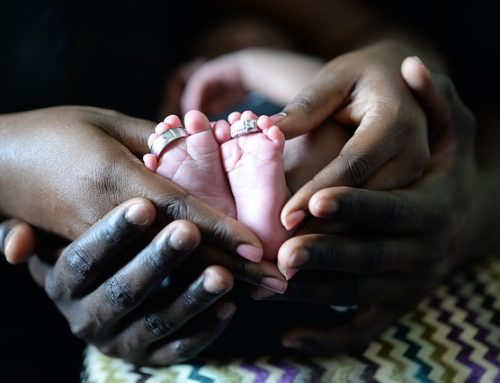Tax Credits for Adoption Expenses
 To take advantage of the adoption tax credit, I recommend that you consult with a tax professional to determine the extent of the tax credit available to you. The following are answers to common questions regarding tax credits and provides an overview but is not a substitute for tax advice from a specialist.
To take advantage of the adoption tax credit, I recommend that you consult with a tax professional to determine the extent of the tax credit available to you. The following are answers to common questions regarding tax credits and provides an overview but is not a substitute for tax advice from a specialist.
Tax credits in adoptions were not abolished in the 2018 Tax Reform Act! Tax credits for adoption expenses are still available under the federal tax code. The credit is a tax credit for the adoptive parent against taxes owed to the federal government for qualified adoption expenses paid to adopt an eligible child in particular types of adoptions. The credit you can be a dollar for dollar off-set of tax liability for the expenses of an adoption. This credit represents a supportive policy towards adoptions. The maximum dollar amount for a tax credit for 2017 is $13,570 per child. If not fully used, credit over the adoptive parent’s tax liability can be carried forward for up to five years. The adoption tax credit offsets adoption costs.
Qualified adoption expenses
Qualified adoption expenses include:
- Court costs and attorney fees
- Agency fees
- Preparation of a home study
- Traveling expenses (including amounts spent for meals and lodging while away from home)
- Other expenses directly related to and for the adoption of an eligible child
An expense can be a qualified adoption expense even if the expense is paid before an eligible child has been identified. Adoptive parents who pay for a home study at the outset of an adoption may treat these fees as qualified adoption expenses.
Types of adoptions that qualify:
An “eligible child” is under the age of 18 or an adult physically or mentally incapable of self-care.
Qualified adoption expenses don’t include expenses for a step parent adoption where a taxpayer adopts the child of his or her spouse. Expenses do not qualify for the credit if the employer reimburses the adoptive parent through an employee benefit plan or if the State of Washington reimburses the adoptive parent through an adoption subsidy or other form of reimbursement. Surrogacy expenses also do not qualify for the adoption tax credit.
If you are not married, but you adopt your domestic partner’s child, your adoption is not considered a step parent adoption and you can claim the adoption tax credit if you have qualified adoption expenses.
Income and dollar limitations:
The credit is subject to an income limitation for the adoptive parents and a dollar limitation for adoption expenses. The income limit on the adoption credit is based on the taxpayer’s “modified adjusted gross income” (MAGI). You can claim the full credit if the adoptive parent/taxpayer’s income is below $203,540 for 2017. Later years may change.
If income for 2017 falls between certain dollar limits, the credit is reduced and is subject to a phase-out (is reduced or eliminated). For tax year 2017, the MAGI phase-out begins at $203,540 and ends at $243,540. If your income is $243,540 or more, there is no credit available.
The tax year for which you can claim the credit depends on:
- When the expenses are paid
- Whether it’s a domestic adoption or a foreign adoption
- When, if ever, the adoption was finalized
Consult with a CPA or tax preparer about this and any other related questions.
Since the credit is per child, the maximum credit depends on the number of children adopted in the time period. If you adopt two children in 2017, your maximum is $13,570 x 2 or $27,140. There is no limit on the number of children one can adopt for the tax credit.
You can also claim a tax credit for a failed adoption in certain circumstances. If the adoption is a US adoption and you had qualified adoption expenses, the adoption is treated as a non-finalized adoption and you must wait one year after you incur the expenses. As with other questions, this issue should be discussed with a tax preparer.
To take the adoption tax credit, you must show documents to the IRS. These documents provide proof that your expenses are qualified adoption expenses. During the adoption process, keep all of your receipts, invoices, and financial documents relating to the adoption so you are prepared to submit these documents to the IRS.





